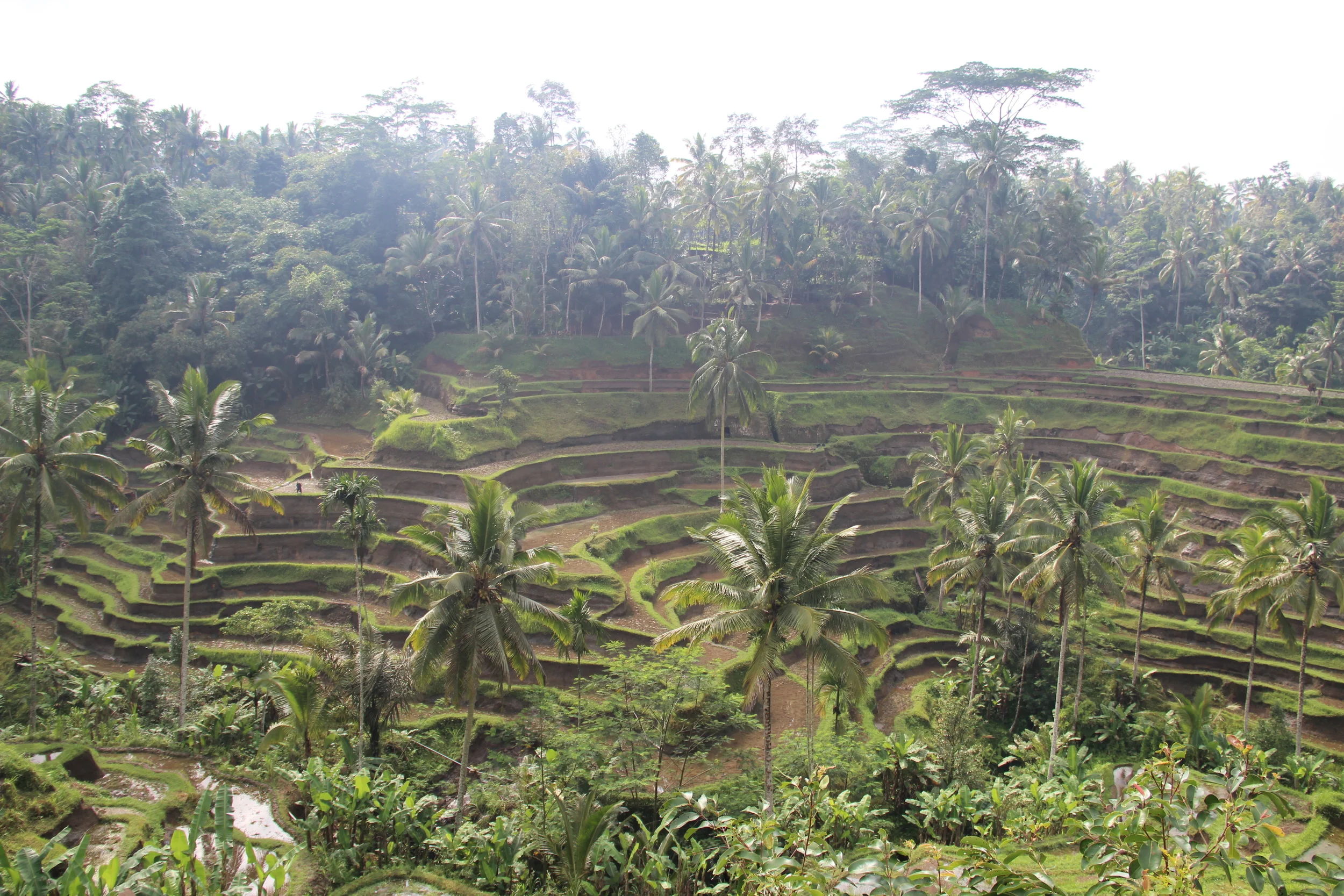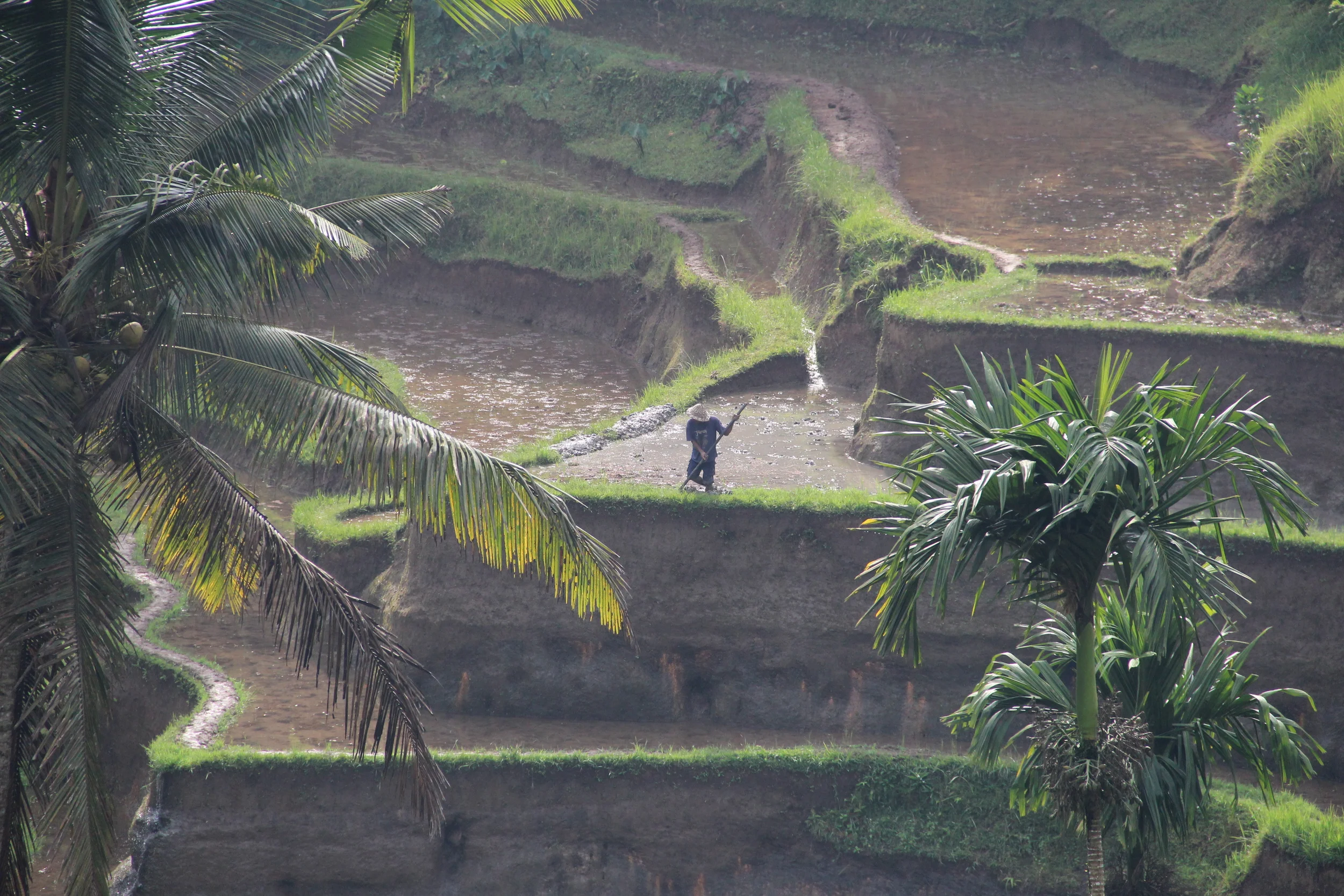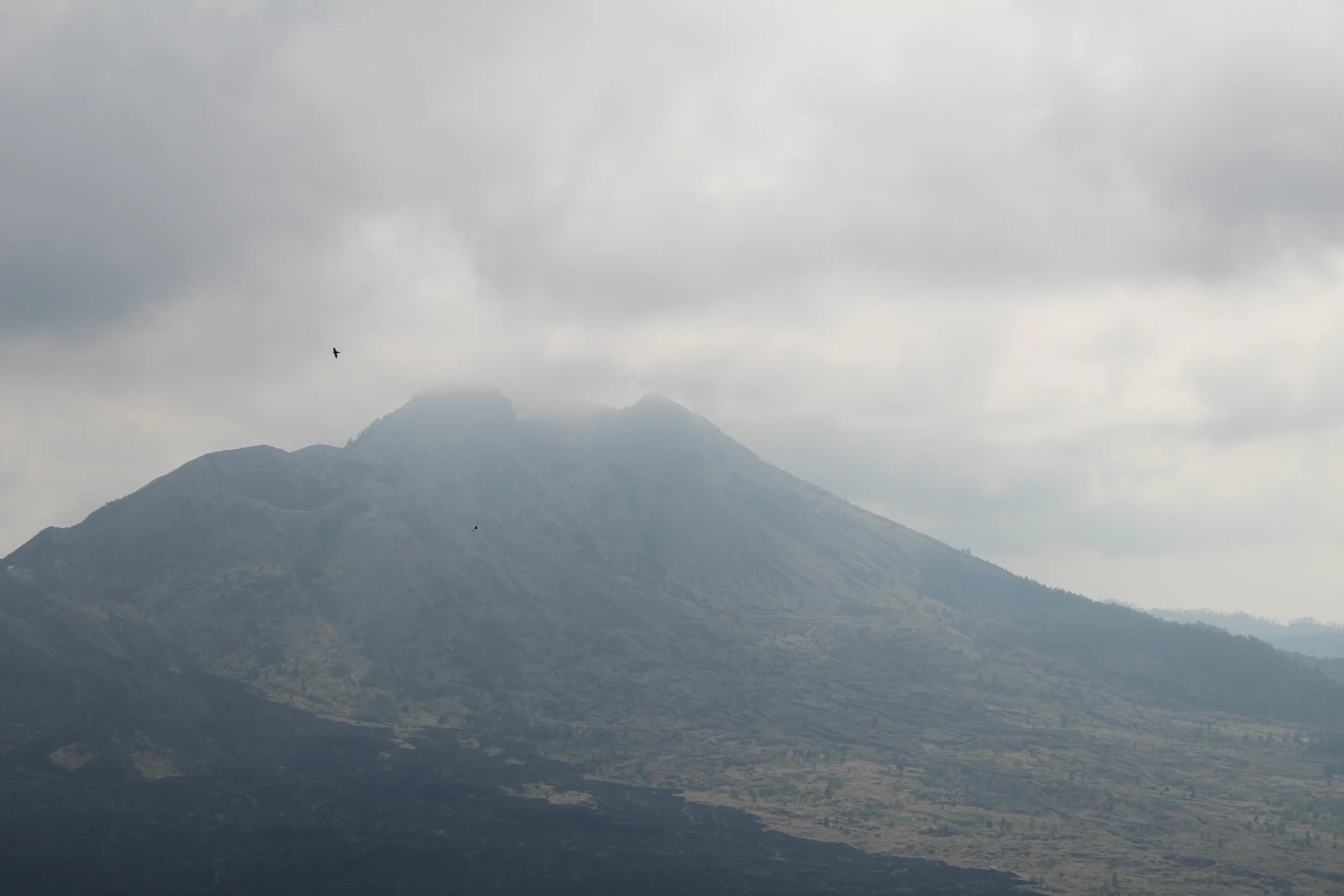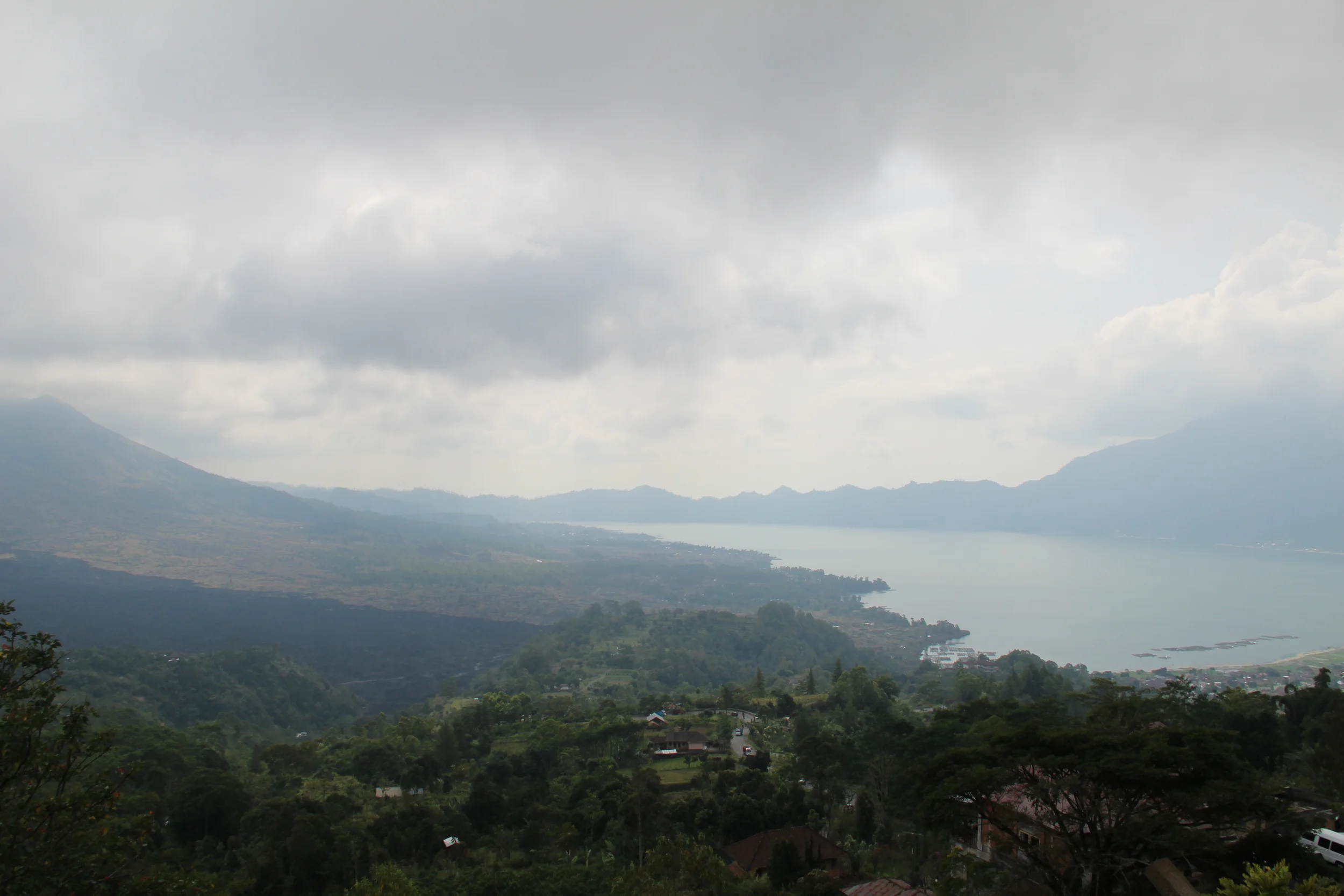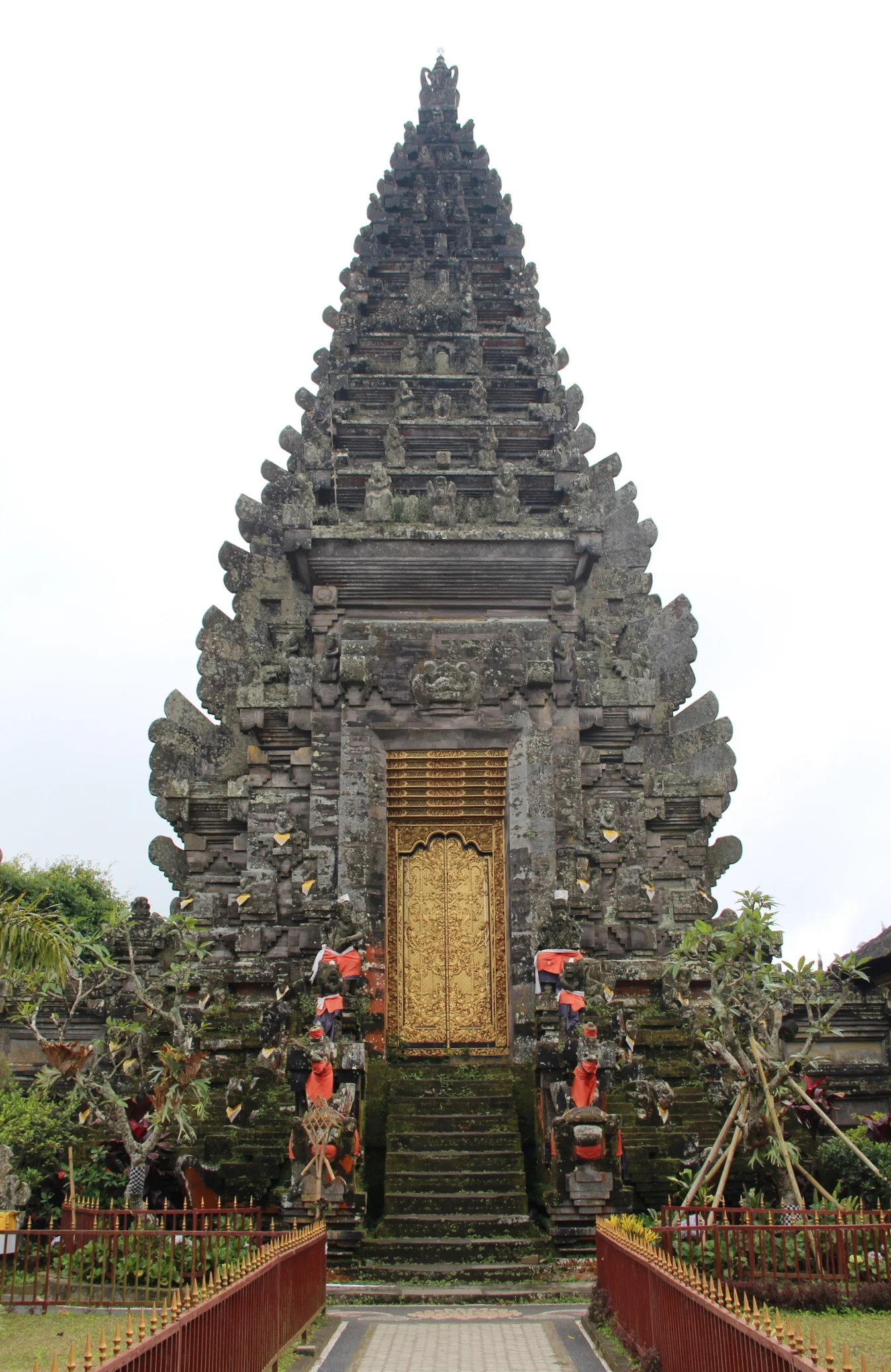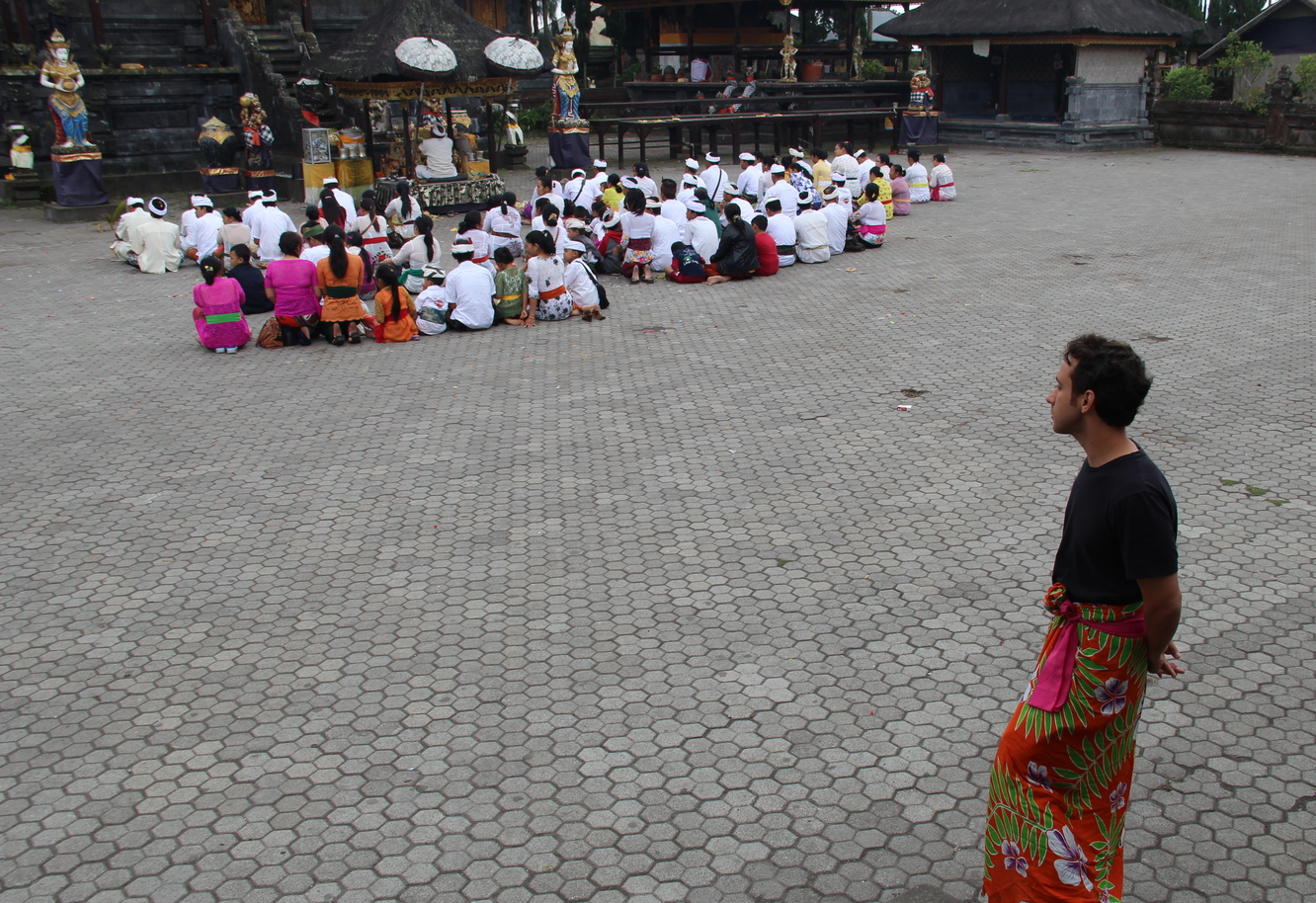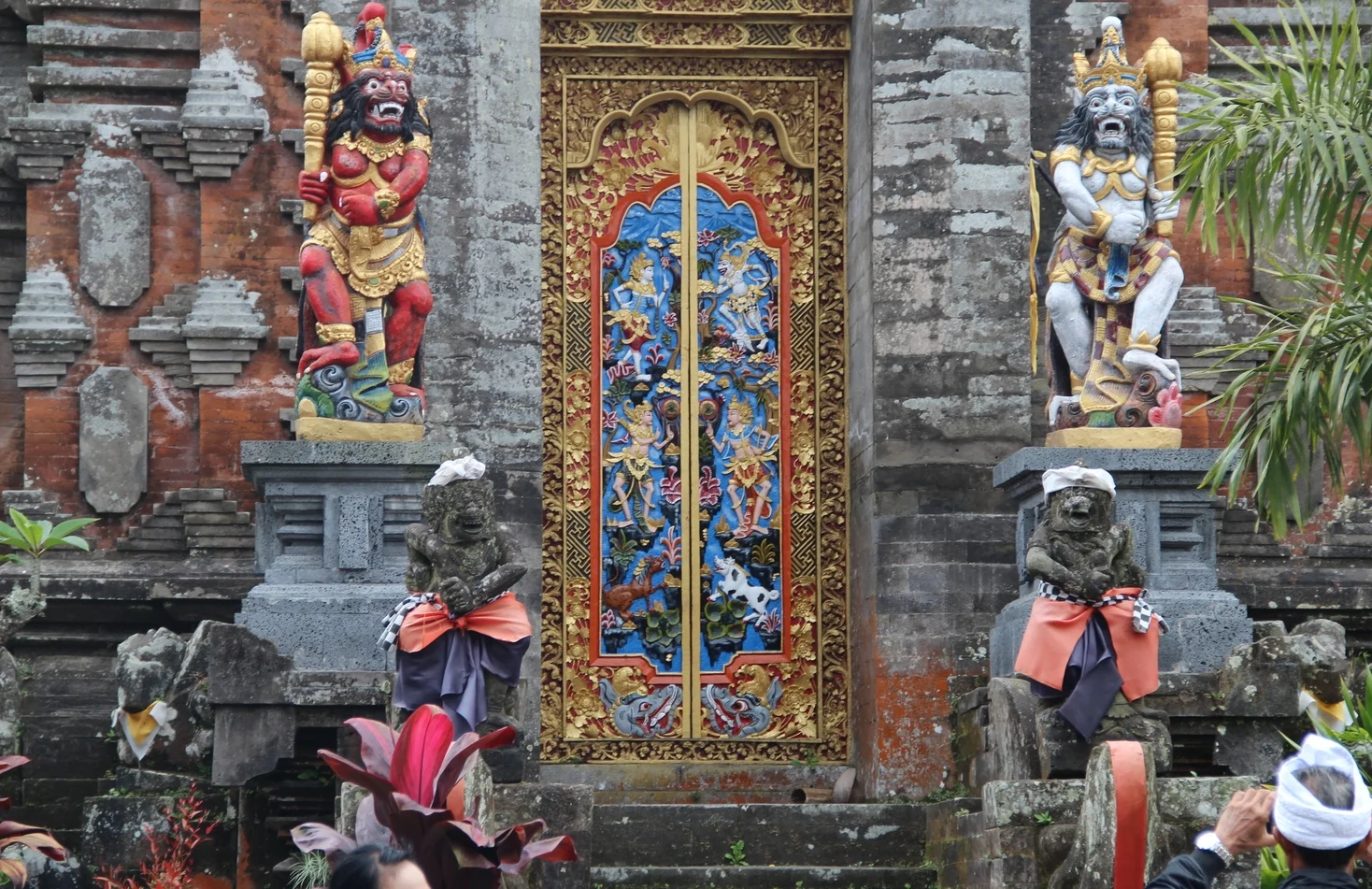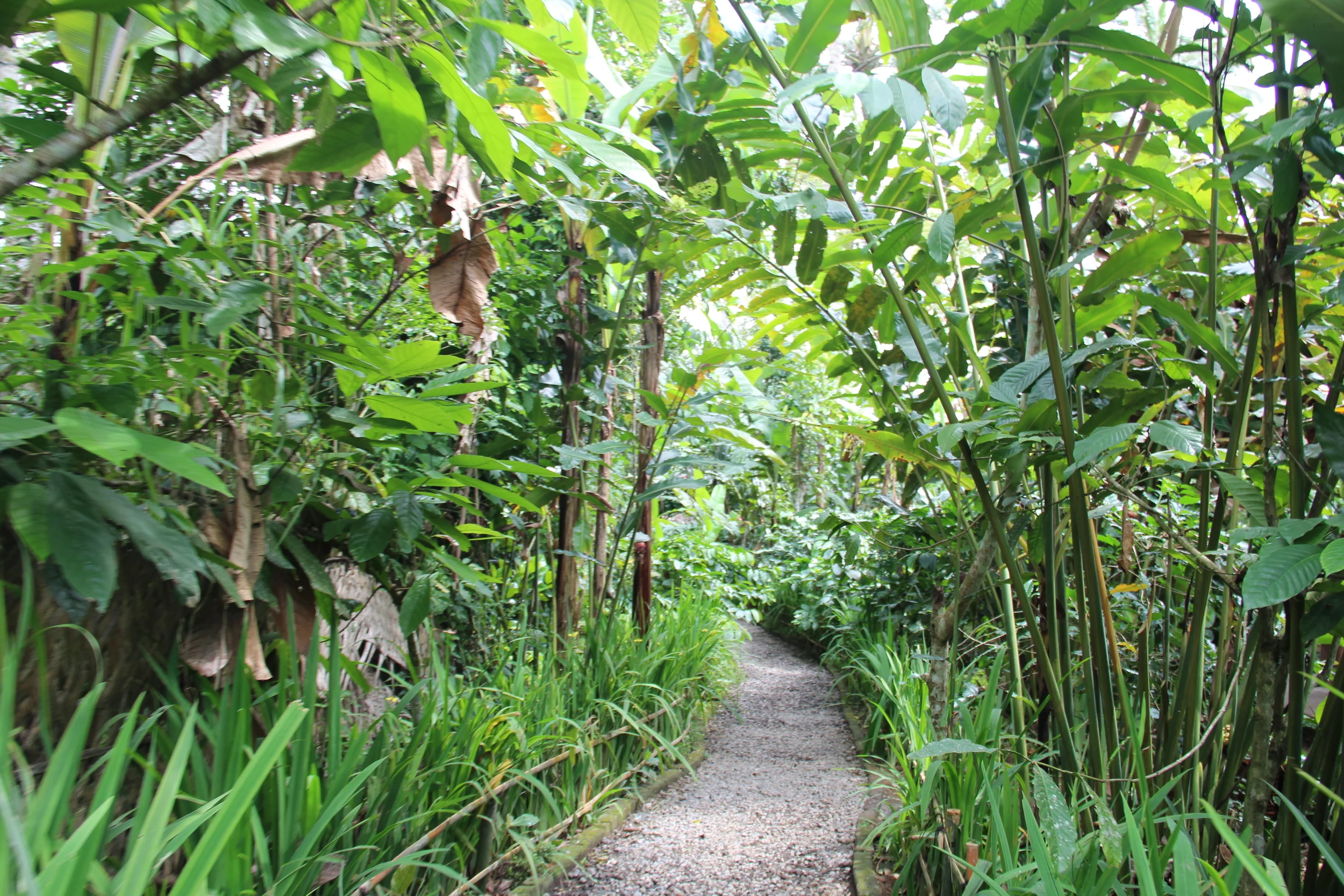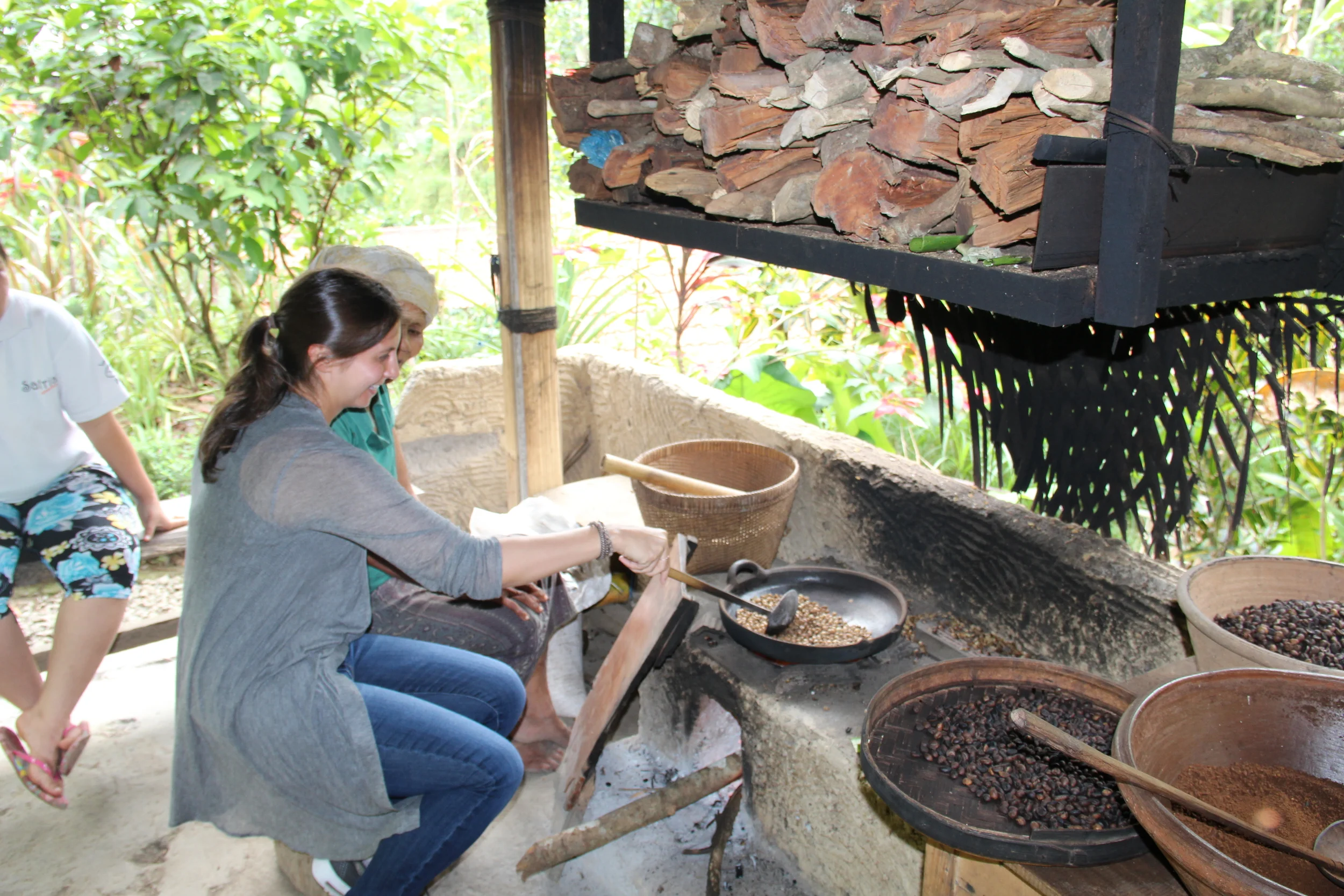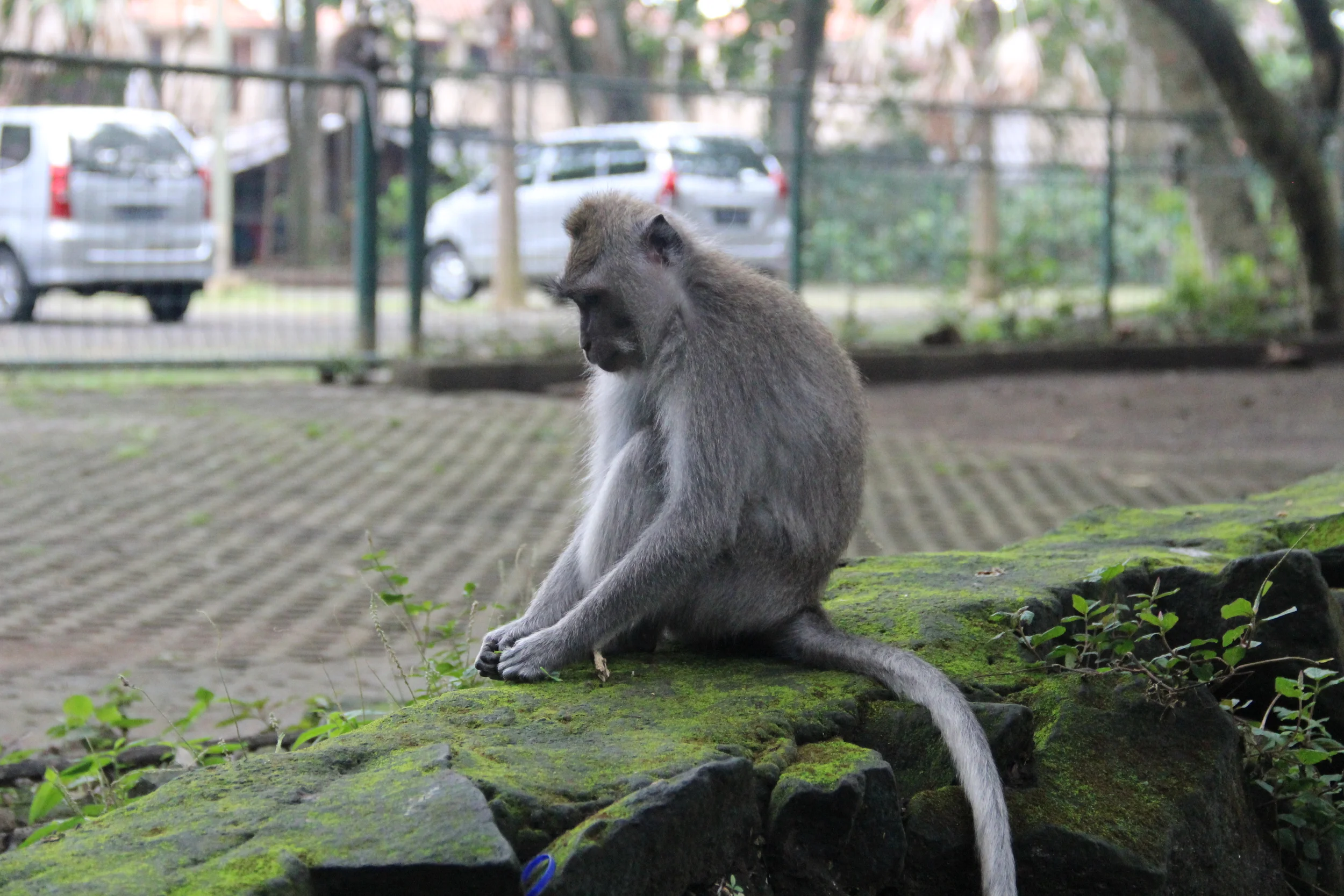Monkeying Around in Ubud
Even though we were utterly infatuated with our hotel in paradise, we wanted to spend a day exploring the surrounding city of Ubud. Known for its rice terraces and monkey forest, Ubud is a cultural and spiritual destination for all travelers to Bali.
So, early one morning, we were escorted by our sweet guide Gede, who managed to pack the entire city into 6 hours!
We started with, what else, the famous Balinese rice terraces in Tegalalang village. We stopped at a viewpoint with panoramic views of the fields--just surreal.
Rice terraces of Bali.
Rice terraces of Bali.
Rice farmer in Ubud, Bali.
Next we drove on to Kintamani village, where we pulled over to take some photos of Mount Batur and Lake Batur. Even on an overcast day, the view was stunning.
Mount Batur, Bali seen from Kintamani.
Lake Batur as seen from Kintamani.
Near Kintamani, we drove to a public temple. There are many types of temples in Bali, the majority of which are Hindu, from small to large; in the small cases, one (or a few) family lives on a compound and each compound has its own temple, dedicated to worshipping the family's ancestors. The Balinese use these temples to pray twice a day.
Within each village, there are temples that locals visit to pray to the three deities, Brahma, Vishnu and Shiva. As a tourist, as long as you pay the proper respect and cover up (men and women must wear a sarong), you will also be free to enter the public temples.
A public temple near Ubud.
Stephen observing a prayer ceremony.
Villagers coming to pray.
Beautiful blue door.
Feeling a little tired, we were pleasantly surprised when Gede pulled over at the Teba Sari coffee plantation. We strolled through the grounds and were able to join some ladies roasting the coffee beans.
Teba Sari coffee plantation in Ubud.
Coffee beans at Teba Sari plantation.
Michelle roasting beans with the expert at Teba Sari coffee plantation.
At the end of the short tour, we were given a free tasting of 15 different teas and coffees, but the real "sell" here is for the Luwak coffee, sold for $5 per cup. Luwak coffee refers to the seeds of coffee berries after being eaten and "evacuated" by luwaks, an animal similar to a cat or fox. At the plantation, they've named it....drumroll please....Catpoochino. Compared to regular coffee, it was strong, smooth, and due to the enzymes in the luwak's intestines, less caffeinated than regular coffee. We bought some Luwak coffee to bring home to family and for Gede as a gift.
Teba Sari coffee and tea tasting. It cost extra for a taste of the Luwak coffee, or cat-poo-chino.
Coffee berries before being eaten by luwaks.
Stephen enjoying some Luwak coffee.
Once we were buzzed up from all of the coffee and tea we drank, we made our way to another public temple called Tirta Empul, known for its holy waters. People come from all over Bali to purify themselves in the natural holy water. We didn't jump in, but we hit a few spouts for good health.
Tirta Empul in Ubud.
This way to holy water.
Purification ritual at Tirta Empul Temple.
Purification at Tirta Empul.
Prayer ceremony at Tirta Empul.
The holy spring water was so many beautiful shades of green and blue.
For our final Ubud attraction, Gede dropped us off at the entrance to the Sacred Monkey Forest. Gede gave us a long pep talk ("Don't kick them"), and then sent us off like a concerned parent. In the monkey preserve, which is located on the grounds of the Pura Dalem Agung temple, live over 600 crab-eating Macaque monkeys. They roam freely, chasing each other, chasing tourists, stealing things from tourists, and generally just feasting on bananas and cucumbers. These monkeys get so many bananas, they become extremely picky about which bananas they'll accept (Stephen tried to feed one of the monkeys, and he just threw the banana back at Stephen...so much for grateful monkeys).
The picky monkey.
We saw some hilarious fatties fighting, and some very protective mama monkeys.
The fatty.
Monkey Family
The thinker.
As our final stop, Gede dropped us off at Naughty Nuri's, a BBQ and martini institution in Ubud. We loved the funky and casual atmosphere, and enjoyed chowing down on ribs with locals and other tourists at the communal tables.
Amazing ribs at Naughty Nuri's Warung.
Overall, awesome day, and awesome city. Ubud is definitely a must visit.
-Michelle
